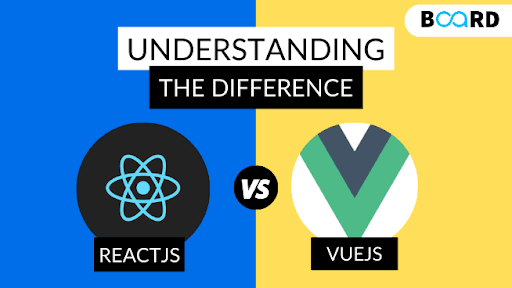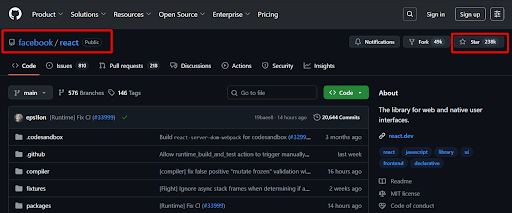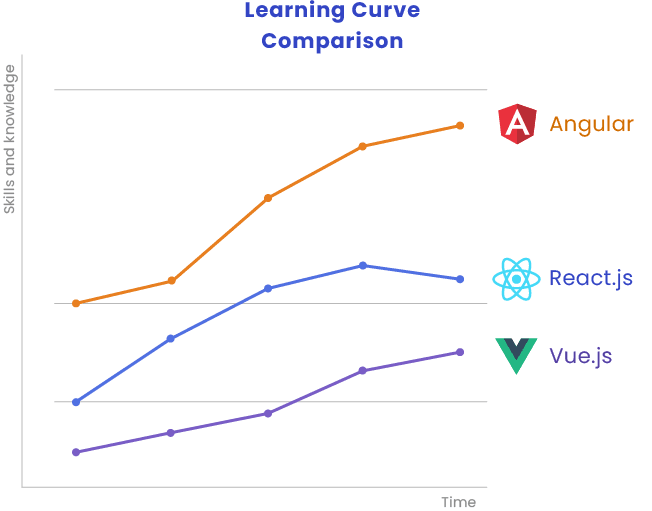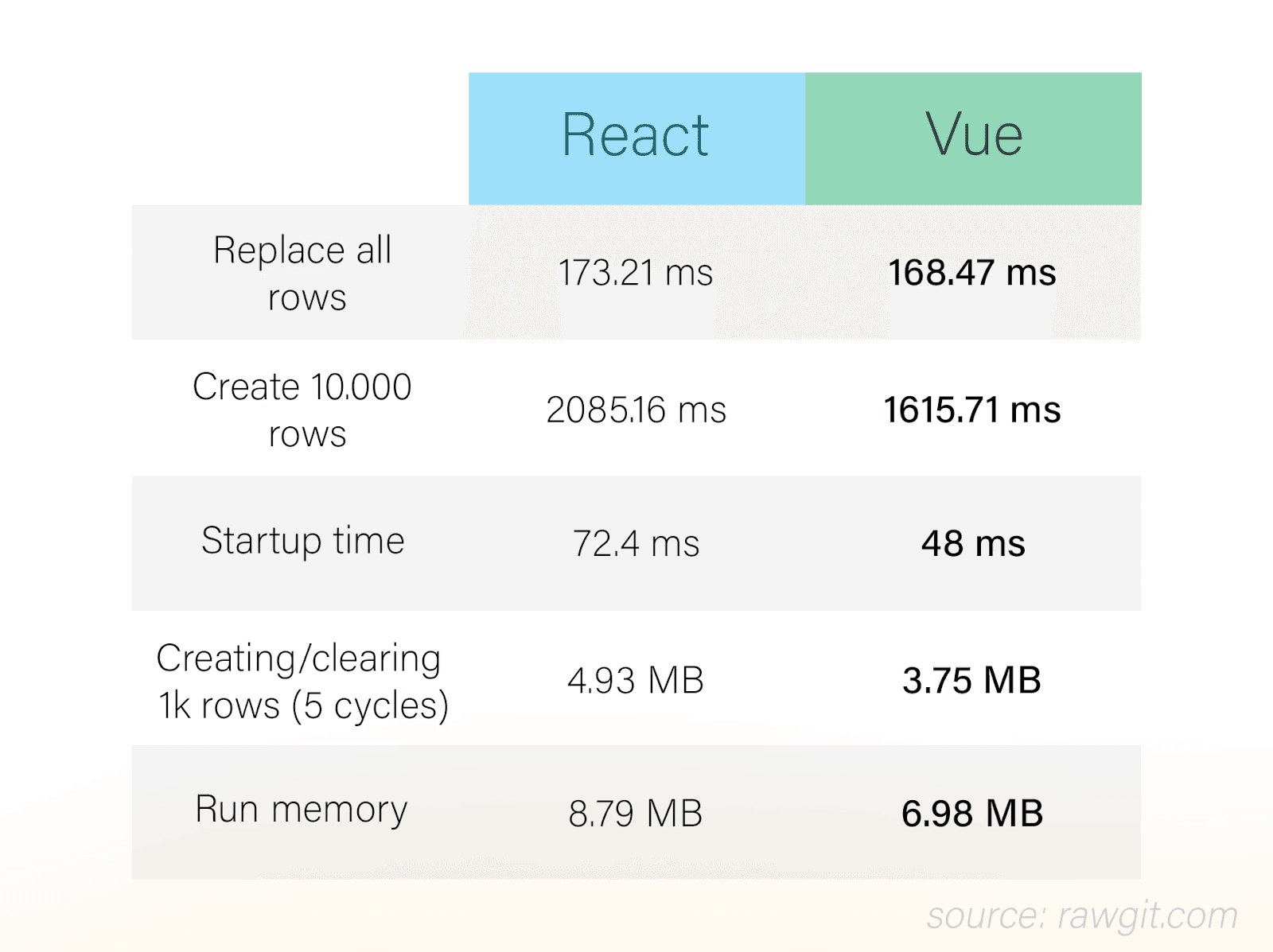Choosing the right frontend technology is no longer only a development decision, but also a business decision!
Whether you’re building an MVP, a SaaS platform, or a global-scale web application, the frameworks you pick impact speed to market, maintenance cost, hiring, and user experience.
Now, when it comes to web development, two names dominate this space: Vue.js and React.js.
Both are powerful, future-proof, and backed by large communities. And if you are wondering what you should choose when it comes to ReactJS vs VueJS, we’ve got you covered!
In this guide, we have talked about everything that will clear your dilemma of whether you should go with React or Vue (from a business lens)!
You will discover many aspects of React.js or Vue.js in terms of performance, learning curve, ecosystem, and long-term scalability.
So, whether you’re a startup founder or a tech leader at an enterprise, you’ll walk away with clarity on which stack suits your product best.
Let’s first have a quick overview of what is Vue.js and React.js Development.
Quick Overview - What Is Vue.js and React.js?

Here are simple and quick definitions of both -
-
What is Vue.js?
Vue.js is a lightweight, flexible, and progressive JavaScript framework that makes it easy to build interactive user interfaces. It’s especially popular for dashboards, admin panels, and mobile-first interfaces.
-
What is React.js?
React.js is a component-based UI library maintained by Meta (Facebook). It excels in building modular, scalable single-page applications (SPAs) and works well with complex data structures and frontend states.
Vue usage is growing fast in Asia and among startups. While React remains the go-to for global enterprise-scale projects. Both have vibrant communities and active development.
Now, let’s have a look at React.js or Vue.js when it comes to their popularity, communities, and vast ecosystems!
Popularity and Ecosystem When it Comes to ReactJS vs VueJS
To give you a quick idea, we can say that React dominates the job market, especially in the US and Europe.
On the other hand, Vue has a massive fan base in Asia and is favored by fast-moving startups.
Let's have a look at some numbers and big companies that use ReactJS and VueJS!
| Framework |
GitHub Stars |
Companies Using It |
| React | 238K+ | Netflix, Airbnb, Meta |
| Vue | 209K+ | Alibaba, Xiaomi, Grammarly |


These stars on GitHub show the framework’s relevance, trust, and ecosystem strength. And as even big companies are using these frameworks, it’s clear that they are beneficial for your business for sure!
Here’s a quick tip on what you should choose when in a dilemma of React or Vue - from a business lens -
- Choose React when hiring experienced devs is a priority.
- Choose Vue when lean, fast development is your focus.
Now let’s compare the equations of ReactJS or VueJS on multiple parameters in the following sections!
Learning Curve and Developer Experience When it Comes to ReactJS vs VueJS

If your priority is to have faster development, Vue can be the best option as they have -
- Simpler onboarding
- Intuitive template syntax
- Excellent documentation
- Great for smaller or newer teams
However, if you are looking for mature tooling, React is the best option to go with as it -
- Uses JSX (JavaScript + HTML-like syntax)
- Has a steeper learning curve but powerful integrations
- Is better suited for teams experienced with modern DevOps
So, in short, Vue reactivity makes it easy to bind data to views, leading to faster development.
And if you need advanced tools and are looking to scale, React.js development is your answer!
Performance & Speed When it Comes to ReactJS vs VueJS

Both are extremely performant, but here’s the nuance:
- Vue functional component is faster in UI-heavy apps and has a smaller bundle size.
- React’s virtual DOM optimizations shine in large-scale SPAs or apps with complex state management.
To give you an example,
- A real-time analytics dashboard may benefit from Vue’s simplicity.
- A SaaS product with complex user roles and permissions? React wins.
Read more: 👉 Why Is Vue.js Good Over Other Frameworks?
Flexibility and Scalability When it Comes to ReactJS vs VueJS

When it comes to flexibility, React is ahead in the race as you can choose routing, state management, folder structure, testing libraries, and more.
On the other hand, Vue is more opinionated and yet offers a full ecosystem (Vue Router, Vuex, Pinia), which is great for speed but less customizable.
And what if you are looking for a ReactJS alternative?
Well, if you want a structured, quick build, then Vue is your alternative. However, for enterprise-scale apps with diverse teams, React remains the favorite.
Use Cases & Real-World Adoption When it Comes to ReactJS vs VueJS
Well, here’s how ReactJS and VueJS are adopted in real life and making an impact -
- ReactJS powers:
-
-
Instagram
-
Netflix
-
Airbnb
-
Dropbox
-
-
VueJS powers:
-
Alibaba
-
Xiaomi
-
Grammarly
-
9GAG
-
In short, Vue usage is perfect for:
- MVPs
- Admin panels
- Progressive web apps
So, if you are still wondering - React js or vue js for enterprise?
The answer is clear - React is better for SPAs, dashboards, and component-heavy architecture.
Cost, Resources & Maintenance When it Comes to ReactJS vs VueJS

From a hiring and operations standpoint -
- Vue developers are easier to onboard and manage, especially for startups.
- React developers cost more but bring deeper ecosystem knowledge, often with TypeScript, CI/CD, and testing best practices baked in.
Maintenance is more predictable in Vue projects. React’s flexibility can lead to technical debt without strict code guidelines.
The best part? Partnering with a tech team like Trreta Techlabs ensures you avoid these pitfalls and build systems that are right for you!
When to Choose Vue.js or React.js for Your Business?
✅ Choose Vue.js if:
- You want faster development with lean teams
- You're building MVPs, dashboards, or admin tools
- You value readability, simplicity, and speed to market
✅ Choose React.js if:
- You're building large-scale or modular apps
- You want enterprise-level flexibility
- You need a larger talent pool and robust tooling
Build the Best Vue or React Architecture with Trreta Technolabs
To put it simply, choosing between Vue and React is more about matching the tech to your business model, product roadmap, and team capabilities.
At Trreta, we help business owners and CTOs like you to assess the tradeoffs, architect scalable systems, and choose the right frontend frameworks that power real growth!
So book a 1:1 consultation today to discuss your requirements and see how we can be your partner in growth!
FAQs
Q1. Why is VueJS good over other frameworks?
Because VueJS is easy to learn, has great documentation, and is perfect for quick builds and readable code.
Q2. Is Vue faster than React?
Yes. In UI-heavy and smaller projects, Vue can be faster due to its lightweight nature and functional components.
Q3. What are real-world use cases for Vue and React?
Vue is used in Alibaba, Xiaomi, and Grammarly. While React is used in Netflix, Airbnb, Instagram, and Trello.
Q4. Which one is easier to maintain long-term: Vue or React?
Vue projects are easier to maintain for smaller teams. React provides better modularity for enterprise teams with strong dev discipline.
Q5. What’s a good ReactJS alternative in 2025?
Vue.js remains a top alternative to ReactJS for those seeking speed, structure, and simplicity in frontend development.





